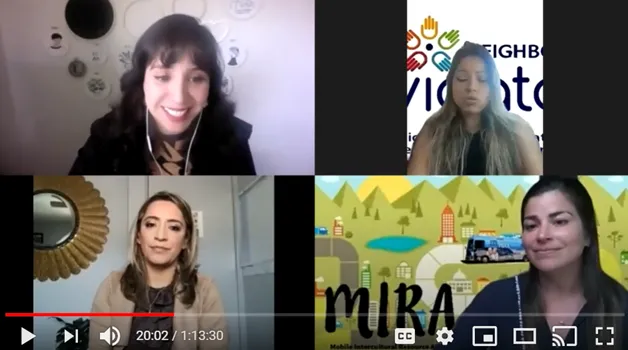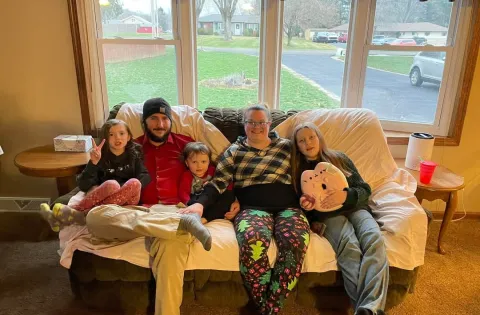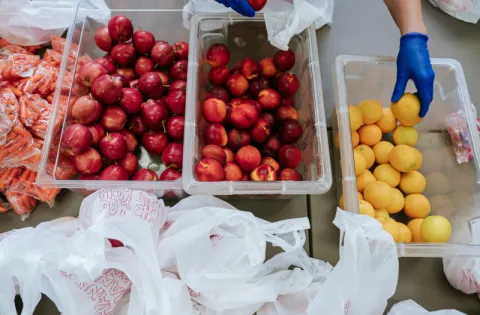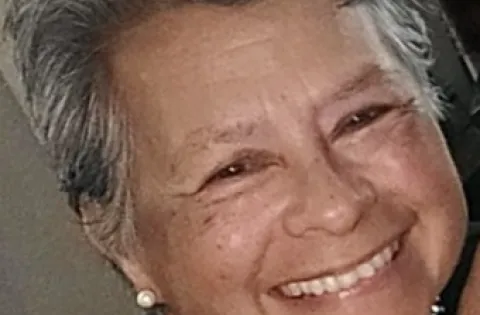
Researchers, policymakers, and community members gathered for the third consecutive year to discuss hunger among kids in rural America. The conversation focused on highlighting the disparities that cause child hunger in rural communities, while also recognizing existing innovations and promising opportunities to end hunger.
Here are four takeaways from the Summit:
1. Partnerships are essential to ending rural child hunger
People from a wide range of backgrounds, from school districts to policymakers to communities of faith, have been sharing their unique abilities to end child hunger in rural America. Speakers at this year’s summit emphasized that only by working together and taking a comprehensive approach can we achieve this goal.
Illustrating this approach during a session on collaborative planning, Evette Tovar-Lugo, No Kid Hungry's California program manager shared that in the San Joaquin Valley: “We needed a space for both rural and urban stakeholders who could come together and share resources, best practices, tackle the issues that plagued our community, and we wanted this effort to be community and parent-led. So we felt that in order to separate our own biases and privilege, that we had to have the community dictate their own goals and their own priorities, and really make them the leaders in this effort.”
This was a common theme across both days of the summit.
2. Rural communities need flexible federal nutrition programs
“Our federal nutrition programs are often our first line of defense against hunger. And as we continue to fight the pandemic and take steps to rebuild our communities and economy, we must ensure that policies we implement are designed to address the geographic, cultural, and racial inequities that have left too many behind,” said Monica Gonzales, director of federal government relations at Share Our Strength, the nonprofit organization that runs the No Kid Hungry campaign.
During the pandemic, the USDA has provided waivers making it easier for families to access the meals they need. However, while intended as a response to COVID-19, the waivers address universal challenges that child nutrition programs faced even before the crisis.
This could not be truer than in rural America. Extending program flexibility would allow schools and other organizations to better serve children in rural communities and to operate more efficiently during the summer months when school is not in session.
No Kid Hungry continues to advocate for smart policy change that can have a lasting impact on kids.
Gonzales added, “we know that the consequences of not providing consistent access to nutritious food will impede our children's health, development and educational outcomes. These consequences can last a lifetime if not addressed now.”
3. It is a moral imperative to approach anti-hunger work with a focus on dignity and equity

Dr. Norman Wirzba, Gilbert T. Rowe Distinguished Professor of Theology and Senior Fellow at the Kenan Institute for Ethics at Duke University, challenged us to think about food as love and fellowship.
“One of the most important things we do when we feed other people is we affirm their life,” he shared. “We affirm that their lives matter, that their lives are to be cherished, and that nothing could be more important than giving them the nurture that will enable them to experience life's fullness.”
Equity is at the core of this expression of love and community. As expressed by Briana Webster Campbell, director of education and training at the No Kid Hungry Center for Best Practices: “Systemic racism is a root cause of child hunger, and we have to adapt our program strategies to reflect that.”
She reiterated the commitment of No Kid Hungry and our parent organization, Share Our Strength, to address the link between food justice and racial justice. Close to 70% of our grants have gone to support communities of color since the beginning of the pandemic. It is also important to note that 30% of all grants have supported rural communities during this time.
4. This is our moment to make lasting change
Secretary of Agriculture Tom Vilsack was the keynote speaker at the event.
Talking about the pandemic, he said, “we need to recognize the opportunity it creates for transformational change.”
In a conversation with Share Our Strength founder Billy Shore, Vilsack emphasized the big opportunity that all Americans have to transform the economy, address systemic racism and end hunger once and for all.
The 2021 Rural Child Hunger Summit was an overwhelming success with participants expressing high levels of satisfaction for the sessions. For the first time, we offered live English to Spanish translation and featured a session in Spanish.
These leaders are going back to their communities with fresh ideas and new connections that will help them ensure every kid in rural America has access to the food they need.
For those who were unable to attend this year's summit, or who did attend but would like to revisit one or more sessions, please visit our website. Session materials and recordings are now available online and include information on speakers, accompanying research and resources, and English and Spanish-language subtitles.




